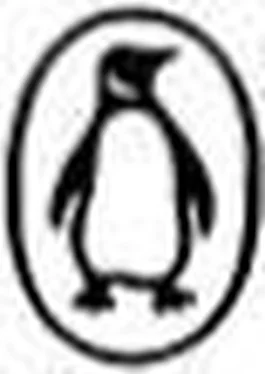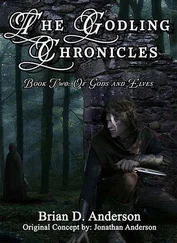Davidson, H. - Gods and Myths of Northern Europe
Здесь есть возможность читать онлайн «Davidson, H. - Gods and Myths of Northern Europe» весь текст электронной книги совершенно бесплатно (целиком полную версию без сокращений). В некоторых случаях можно слушать аудио, скачать через торрент в формате fb2 и присутствует краткое содержание. Жанр: Старинная литература, на английском языке. Описание произведения, (предисловие) а так же отзывы посетителей доступны на портале библиотеки ЛибКат.
- Название:Gods and Myths of Northern Europe
- Автор:
- Жанр:
- Год:неизвестен
- ISBN:нет данных
- Рейтинг книги:5 / 5. Голосов: 1
-
Избранное:Добавить в избранное
- Отзывы:
-
Ваша оценка:
- 100
- 1
- 2
- 3
- 4
- 5
Gods and Myths of Northern Europe: краткое содержание, описание и аннотация
Предлагаем к чтению аннотацию, описание, краткое содержание или предисловие (зависит от того, что написал сам автор книги «Gods and Myths of Northern Europe»). Если вы не нашли необходимую информацию о книге — напишите в комментариях, мы постараемся отыскать её.
Gods and Myths of Northern Europe — читать онлайн бесплатно полную книгу (весь текст) целиком
Ниже представлен текст книги, разбитый по страницам. Система сохранения места последней прочитанной страницы, позволяет с удобством читать онлайн бесплатно книгу «Gods and Myths of Northern Europe», без необходимости каждый раз заново искать на чём Вы остановились. Поставьте закладку, и сможете в любой момент перейти на страницу, на которой закончили чтение.
Интервал:
Закладка:
THING (þING): Public meeting for the passing of laws and hearing of law cases, held regularly at places of assembly
THIðRIKS SAGA: þiðriks Saga of Bern, written in Norway in the thirteenth century, containing German material
THOKK (ÞǪKK): Giantess who refused to weep for Balder, said to be Loki
THOR (ÞÓRR): God of thunder, specially venerated in Norway and Sweden
THORBIORN BRUNARSON (ÞORBJǪRN BRÚNARSON): Eleventh-century Icelandic poet, of whom a few verses have survived
THORGERDA (ÞORGERðR HǪLGARBRÚðR): ‘Bride of Helgi’. Goddess worshipped by the Jarls of Halogaland, and connected with Freyja
THORGRIM (ÞORGRÍMR ÞORSTEINSSON): Brother-in-law of hero of Gísla Saga , whom Gisli killed; called the priest of Freyr
THORHALL (ÞORHALLR VEIðIMAðR): ‘The hunter’. Worshipper of Thor who took part in expedition to Vineland
THOROLF (ÞORÓLFR MOSTRARSKEGG): ‘Beard of Most’. One of early settlers in Iceland, great worshipper of Thor, who came from island of Most in Norway
THORD FREYSGOðI (ÞÓRðR): Thord priest of Freyr. A name found in several Icelandic genealogies, though little is known of him
THRYM (ÞRYMR): Giant who stole Thor’s hammer. The story of its recovery is told in the Edda poem Þrymskviða
THUNOR (ÞUNOR): Thunder god worshipped by the Anglo-Saxons
TÎWAZ: God of battle worshipped by the Germans
TIW: Or Tig. Name under which Tiwaz was worshipped by Anglo-Saxons
TYR (TYR): One of the gods of Asgard, thought to be an early war god
TÚAΤΗA DÉ DONANN: Originally ‘peoples of the goddess Donu’, a spirit folk. The gods of pagan Ireland
ULL (ULLR): One of the gods of Asgard. Famous archer and skier
URD (URðR): One of the Norns who guarded the spring by the World Tree
UTGARD-LOKI (UTGARðAR-LOKI): The giant ruler of Utgard, a realm outside Asgard
VAFÞRÚðNISMÁL: Dialogue poem in the Edda between Odin and Vafþruðnir the giant
VAÏNÄMÖINEN: Great magician of Finnish epic Kalevala
VALASKJÁLF: The seat of Odin, from which he could see all worlds
VALHALLA (VALHǪLL): ‘Hall of the slain’. The dwelling of Odin where he welcomes those slain in battle, and where they spend their time fighting and feasting
VALKYRIE (VALKYRJA): ‘Chooser of the slain’. Female spirit attending the god of war, who helps to decide the course of battle and conducts the slain to Valhalla
VALI (VÁLI): Son of Odin and Rind, who avenges Balder by killing Hoder, and who survives Ragnarok
VANIR: The race of gods to which Njord, Freyr, and Freyja belong, connected with fertility
VATNSDŒLA SAGA: One of the Icelandic family sagas, telling of the men of Vatnsdale (translated by G. Jones, Princeton, 1944)
VE (VÉ): Son of Bor and brother of Odin
VIDAR (VÍDAR): Son of Odin, who avenged him by slaying Fenrir
VIGA-GLÚMS SAGA: One of the Icelandic family sagas containing much early material. The story of Glum, a famous Icelandic fighter and poet (translated by Sir E. Head, London, 1866)
VIGRID (VÍGRÍðR): Plain on which the last great battle is fought
VIKAR (VIKARR): Norwegian king who was sacrificed to Odin
VILI: Son of Bor and brother of Odin
VINELAND (VINLAND): Settlement of the east coast of America established by Icelanders from Greenland
VITAZGJAFI: ‘Certain giver’. Name of a field beside the temple of Freyr in Viga-Glúms Saga
VOLSUNG (VǪLSUNGR): Founder of the Volsung family, father of hero Sigmund
VǪLSUNGA SAGA: One of the best-known of the Fornaldar Sǫgur , telling of the history of the Volsung family, and especially of the famous hero Sigurd (translated by O. Schlauch, New York, 1949)
VǪLUSPÁ: ‘Sooth-saying of the vǫlva’. Poem in the Edda telling of the beginning and ending of the worlds. The Shorter Vǫluspá is another poem about the origin and doom of the gods
VǪLVA: Woman with powers of divination, a seeress
WACHILT: Giantess mother of Wade in Germanic tradition, said to live under the sea
WADE: Giant remembered in Anglo-Saxon and Danish tradition. Connected with great stones and with the sea, father of Weland the Smith
WÆLCYRGE: ‘Chooser of the slain’. Term used to translate the names of the Furies in Old English word lists of eighth and ninth centuries
WELAND: Supernatural smith of the early Anglo-Saxon tradition. Vǫlundr in Old Norse poetry
WIDIA: Son of Weland. Wittich in German tradition
WILLEBRORD: Bishop of Utrecht. Missionary in the Netherlands in the eighth century. Life written by Alcuin of York (translated by C. H. Talbot, The Anglo-Saxon Missionaries in Germany , London, 1954)
WILLIAM OF MALMESBURY: Writer of twelfth-century Latin history of the kings of England, Gesta Regum Anglorum (translated by Sharpe in the G. Bell Bohn Library, 1847, 1876)
WODAN: Or Wotan. God of battle and death worshipped by the heathen Germanic peoples
WODEN: God of battle and death worshipped by the Anglo-Saxons in England
WULFSTAN: Lupus. Anglo-Saxon Archbishop of York, 1002–23. His homilies have survived, and the most famous is Sermo Lupi , a sermon about the sins of the nation (ed. Whitelock, Methuen, 1939)
YGGDRASILL: Probably ‘Horse of Yggr (Odin)’. The World Tree, forming the centre of the worlds of gods, men, and giants
YMIR: Primeval giant, from whose body the world was formed
YNGLINGA SAGA: First section of Snorri’s Heimskringla , which gives an account of the early kings of Sweden, the Ynglings, from whom the Norwegian kings were descended
YNGLINGS (YNGLINGAR): Royal dynasty of Sweden
YNGLINGATÁL: Ninth-century poem by þjóðólfr ór Hvíni, giving a list of the early kings, how they died and where they were buried, from which Snorri took much of his information for Ynglinga Saga
Index
Abingdon, Chronicle of, 105
Adam of Bremen: on gods at Uppsala, 70, 75, 77, 84, 86, 96, 124; on sacrifices, 51; on tree near temple, 191
Aegir, 128–30
Aesir, 25–6, 172; their war with Vanir, 40, 45, 126, 167, 168
Æstii, 99
Aethelweard’s Chronicle , 105
Aggersborg, 69
Agnar, 111
Agni of Sweden, 116
Alaisiagae, 62, 64
Alamanni, 59, 160–61
Alcis, 169
Alfheim, 28, 107, 156
Alfred, King, 13, 77
Ali of Sweden, 99
Amulet (hammer), 81
Andvari, 43–4, 218
Anglo-Saxon literature: Caedmon, 198; Chronicle , 77, 105, 160; Cynewulf, 99; devil in, 178; Exodus , 65; Seafarer , 218; spells, 63, 113, 156; Wade, 131; word-lists, 62. See also Beowulf
Anglo-Saxons, 10, 11; cemeteries, 17, 81, 160; conversion, 220; dynasties, 56, 60, 108, 201; helmets, 98; place-names, 87; ship-burial, 133–4; urns, 147; worship of gods, 83, 86, 104, 113, 147, 161, 170
Angrboda, 31, 188
Apples of youth, 30, 39, 165–6, 179
Apuleius, 96
Asgard: building of, 28, 31; destruction of, 110, 202; position of, 46, 190; protection of, 91, 173
Asthall Barrow, 160
Auðhumla , 27, 198, 200
Aurvandil, 41, 199
Balder, 29, 30, 40, 182–9, 217; death of, 35–7, 39, 80, 108–10, 136, 150, 162; his son, 171
Baldrs Draumar , 143, 146, 185–6, 188
Battle of Goths and Huns , 53
Beard of Thor, 73, 85
Beaw, 108
Bede, the Venerable, 11, 50, 113, 220, 221, 222
Bede (goddess), 62
Belt of Thor, 29, 33, 42, 179
Benty Grange Tumulus, 98
Beow, 108
Beowulf , 15; boar helmets in, 98, 99; creation song in, 198; cremation in, 160; dragon in, 159, 161; Grendel in, 18; Herebeald in, 189; praise of fame in, 216; sacrifice in, 51; Scyld in, 104; ship-funeral in, 135–6
Читать дальшеИнтервал:
Закладка:
Похожие книги на «Gods and Myths of Northern Europe»
Представляем Вашему вниманию похожие книги на «Gods and Myths of Northern Europe» списком для выбора. Мы отобрали схожую по названию и смыслу литературу в надежде предоставить читателям больше вариантов отыскать новые, интересные, ещё непрочитанные произведения.
Обсуждение, отзывы о книге «Gods and Myths of Northern Europe» и просто собственные мнения читателей. Оставьте ваши комментарии, напишите, что Вы думаете о произведении, его смысле или главных героях. Укажите что конкретно понравилось, а что нет, и почему Вы так считаете.












